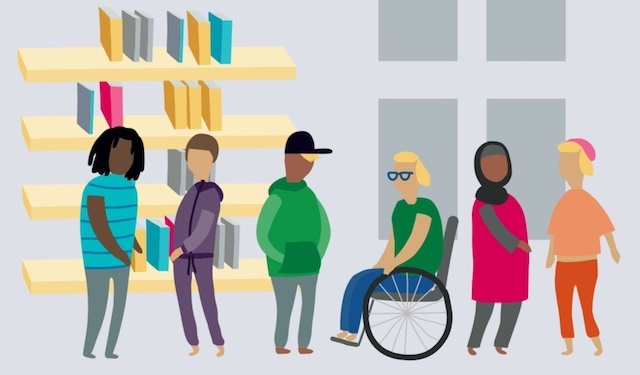Parents and young people agree that learning about relationships in new RSE curriculum is essential
A new survey has found that nearly 90% of parents said sex education would be improved by including relationship education.
Young people agreed that they want to learn about abusive relationships (84.0%), how relationships can affect mental health (78.7%) and how to get out of a bad relationship (76.9%) – but not from their parents; whereas parents’ preference is to be the first port of call for teaching their children about relationships.
In 2017, the secretary of state for education confirmed the government’s commitment to place Relationships and Sex Education (RSE) on a statutory footing and within the national curriculum from 2019. The Department for Education consultation about what should be taught in the new RSE curriculum closes on 12 February 2018.
The Mix, a support service charity for young people, and OnePlusOne, a leading relationship research charity, have worked together to give young people and parents a voice about what they want in RSE.
The Mix CEO, Chris Martin, said:
“Young people growing up in the digital age face unique new challenges around how to form and nurture healthy relationships. The new RSE curriculum presents an incredible opportunity to work with parents, teachers and young people to ensure the next generation have the skills they need to fully understand how to manage both the good and the bad in their relationships. We believe that school is the time to help young people create the behavioural templates that will underpin positive behaviours throughout their lives”.
OnePlusOne director, Penny Mansfield CBE, said:
“There is a wealth of evidence to show that relational capability – the ability to initiate and maintain relationships – is vital to healthy development in childhood and adolescence. Relationally capable young people can engage in education, move into and prosper in the workplace, form committed partnerships in which to raise children, and engage with public services and civil society. An evidence-based age-appropriate Relationships and Sex Education curriculum can help today’s children and young people manage relationships in different contexts, especially online. It will be transformative in terms of this and future generations’ health and wellbeing”.
A surveyed parent, said: “I would like more basics around what constitutes good and bad relationships so my daughter has enough context to identify right and wrong for herself when she experiences it. Sex education in factual way only covers a small portion of the valuable information and wider relationship management education with partners and peers is just as important if not more, also for children to understand when they themselves do wrong by other people”.
A surveyed young person said:
“It’s fine teaching kids about safe sex and STIs but informing young adults about mentally abusive relationships should be compulsory also”.
The surveys have uncovered gaps in skills and knowledge about relationships, informed us about themes missing from the current curriculum, and gathered young people’s suggestions on how RSE should be taught in schools. All findings will be submitted to the government’s RSE consultation with proposed curriculum content.
The parents responding to the survey said they would prefer their children to receive relationship education from themselves (85.2% of the sample), from a third-party service such as a young people or relationship support charity (62.6%) or their school tutor (57.8%).
While parents would like to be the first port of call for teaching relationships to young people, the majority of young people placed parents fourth. Young people would rather receive information from a person who is not a teacher in their school (50.4% of the sample). They want advice and support from friends of a similar age (48.6%), the internet (30.8%) and their parents (29.7%).
Unhealthy relationships have a negative impact on a young person’s wellbeing and, in this fast-paced digital age, safeguarding children from such relationships requires special attention. The decision to legislate and improve RSE was made following extensive research and efforts to highlight inconsistent teaching quality of the existing non-compulsory ‘Sex and Relationships Education’.
Both organisations passionately believe in the power of strong relationships and saw the consultation as an exciting opportunity to combine expertise to influence the new curriculum.
ENDS
For more information on the findings and the project, contact [email protected] on 07766 660 755 or [email protected] on 020 3096 7889.
Notes to editors
The five-minute surveys for young people and parents sought preferences towards relationships-related topics and modes of delivery. With both surveys having similar questions, researchers were able to compare young people’s responses to parents’ views. Demographic information permitted further comparisons by, for example, the age groups of young people.
The precise nature of the questions for both surveys were a product of reviewing a number of key documents. These included Curriculum Guidance from the Sex Education Forum; Ofsted reports from 2000 (Sex and Relationship Guidance) and 2013 (Not Yet Good Enough: personal, social, health and economic education in schools); and the Call for Evidence document underpinning this response (DfE, 2017). These documents were integral in asking questions that reflected contemporary trends, such as the increased accessibility of the internet and the wide use of social media since the last Ofsted guidance in 2000.
Both surveys were deployed using SurveyMonkey and a total of 1,438 responses was received.
About OnePlusOne www.oneplusone.org.uk
OnePlusOne is committed to helping people to build stronger relationships, which are the bedrock of society and give people the resilience needed to deal with everything that life throws at them.
Over 45 years, our social scientists and researchers have amassed extensive evidence-based research and data. This enables us to equip people with skills and knowledge to improve their relationships so that couples, parents and children can be happier, healthier and more successful. Our resources are always evidence-based, and our research and innovation process makes us unique.
By
Published on 13-Feb-2018
No featured article















